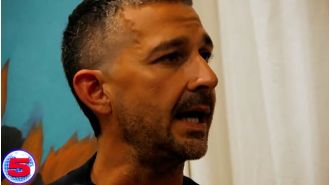A former student at the University of Tennessee receives a $250K payout after suing over explicit lyrics in Cardi B's song "WAP."
UT college committee investigates student's posts after anonymous complaint about their content, just two days after enrollment.

Kimberly Diei, a former student at the University of Tennessee, recently won a legal battle against the university that began when they tried to expel her for a post she made on social media. The post featured lyrics from Cardi B's popular song "WAP" and sparked controversy within the university community. However, after four years of fighting for her rights, Diei was able to secure a $250,000 settlement on Feb. 29.
The news of the settlement was announced by the Foundation for Individual Rights and Expression, a pro bono organization that has been supporting Diei throughout her lawsuit. The lawsuit, which was filed four years ago, claimed that the university was violating her First Amendment rights. Diei's case was one of many that the organization has taken on to protect free speech and expression.
The issue began when UT's Health Science Center College of Pharmacy launched two separate investigations into Diei in 2021. These investigations were a result of her social media posts, which were deemed to be in violation of the university's "professionalism" standards for students. The timing of these investigations, just two days after Diei enrolled at UT, raised suspicion and led to accusations of discrimination.
The college's professional conduct committee looked into Diei's posts after receiving an anonymous complaint about their content. One of her posts featured lyrics from the popular song "WAP" by Cardi B, while the other was a selfie with lyrics from Beyoncé's song. Despite the fact that these posts were made on her personal social media account, the university saw them as a violation of their standards and almost expelled Diei.
However, with the help of the Foundation for Individual Rights and Expression, Diei was able to prove that her words were protected by the First Amendment. The organization argued that Diei's posts were a form of self-expression and did not reflect her identity as a pharmacy student at UT Tennessee. This argument was supported by a federal appeals court on Wednesday, solidifying Diei's victory.
Greg Greubel, an attorney from FIRE who worked on Diei's case, expressed his satisfaction with the outcome, stating, "UT's pharmacy school learned an important lesson today. Students have the right to express themselves, even if it may not align with the views of college administrators. Kim's case proves that the First Amendment protects students' rights to have a voice outside of school."
This ruling is not only a victory for Diei, but also a landmark decision that sets a precedent for protecting students' First Amendment rights. It serves as a reminder that freedom of speech and expression should not be limited or censored, even within a university setting. Thanks to Diei's determination and the support of FIRE, her case has made a significant impact in defending the rights of students across the country.










